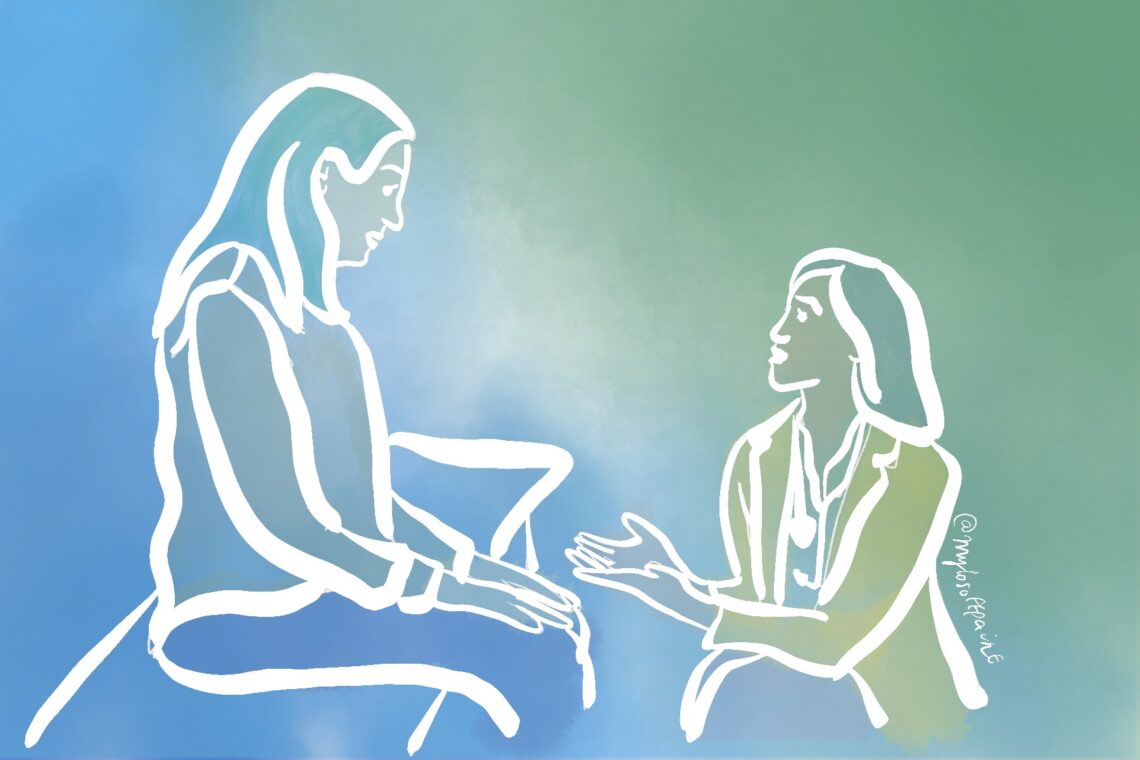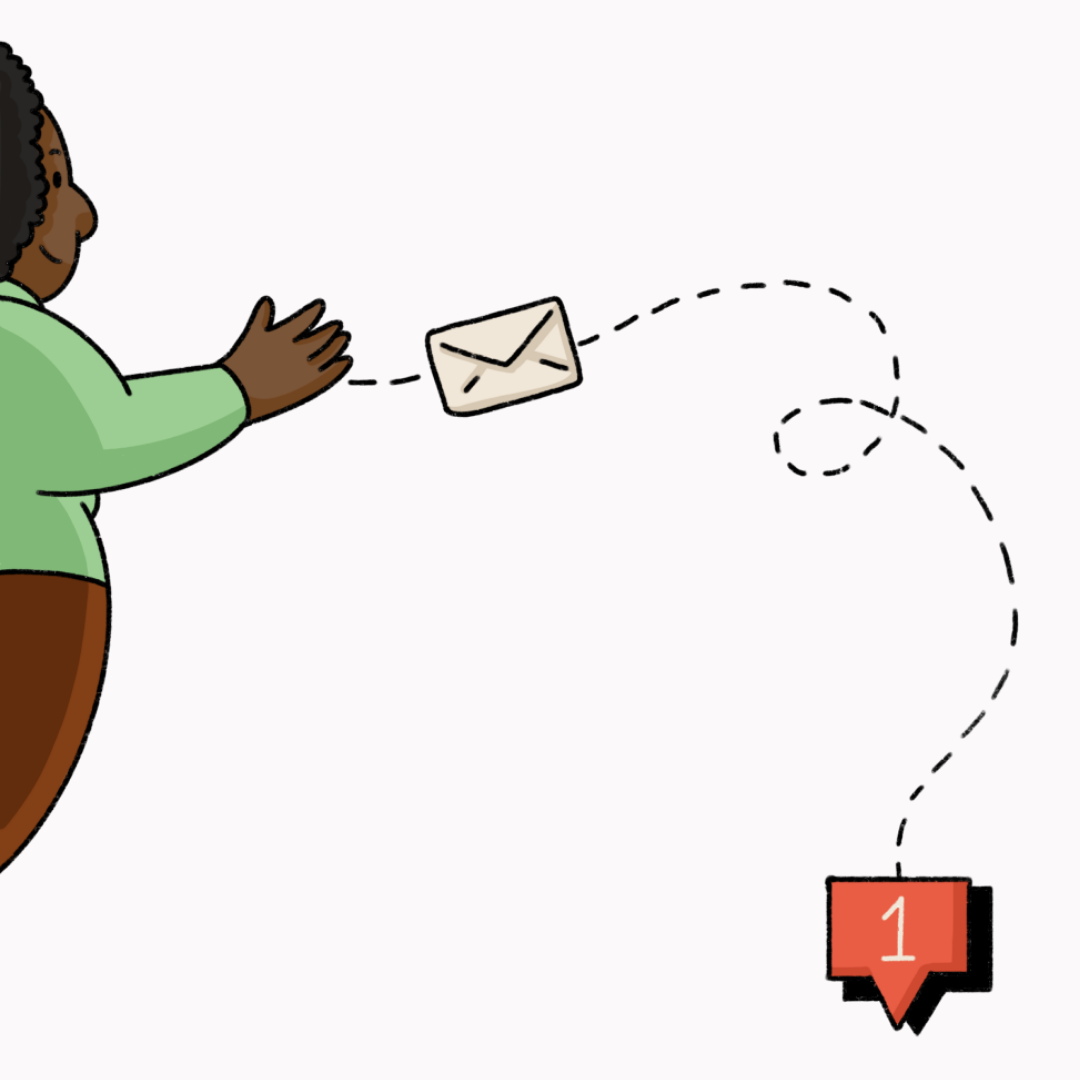Written by: Michiko Caringal (she/her), MScPT, MHSc in Bioethics
Edited by: Lydia Collins (she/her)
I was a 20-something year old with anorexia, and newly diagnosed with bipolar disorder.
The front desk clerks at hospitals and medical clinics wouldn’t even bother to look at my health card anymore while checking me in. I was one of those frequent flyers.
I entered the examination room and sat on the cold, sterile patient bed. I made crinkly sounds on the table paper as my bum wiggled to get comfortable. I wore nothing but a pale blue hospital gown. My feet dangled like a toddler. I clenched my fists until my nails dug into my palms and watched my knuckles turn white. I grinded my teeth and rubbed my tongue on the top of my mouth. Being in such a vulnerable state always made me feel afraid.
On the other side of the curtain, the doctor asked if I was ready. Without hesitation I lied with a weak, quiet “yes.”
The young male doctor was thorough, letting me know step-by-step what he would be examining. I was determined to find answers, so I rushed into giving consent to every vaginal test available. Sweeps of the swab against my inner labia burned my pelvis inside and out. The pain felt like scorching flames on my groin. When he touched the opening of my vagina with his finger, it felt like sharp knives slicing into my delicate flesh. The cold speculum slowly opened as if it were a tattoo gun rattling at my pubic bone. This was all too common for me; no one could touch me. No one could love me. I had even managed to convince myself that I was undeserving of love.
I stared at the doctor in hopes of a moment of discovery and clarity. “Vulvodynia. Don’t worry, it will go away once you deliver a baby. Just keep having sex.” He said.
I walked out of that examination room in physical and emotional pain and shut down with more confusion and unanswered questions than I had entered with. I bumped into a corner of a wall as I turned to exit the clinic and saw the reflection of my face on the glass door. I looked ruined. How can I conceive when my partner can’t even touch my shoulder without me shuddering? How can I have sex when the act of penetration is my most unpleasurable battle?
The search for a cure seemed like an immoral, hopeless journey. I remember that I wanted to pull my hair and rip off my labia. I wanted to scream. I wanted to yell at every doctor who touched me and told me that my pain was “in my head” and “it will go away” with the consumption of a cocktail of pills. These discouraging comments were too much to endure.
To this day, I clearly remember the four nurses and doctors’ faces who triggered my clinical depression to the extent of suicidal thoughts. They were not trying to harm me, but the scar continued to itch my heart. One said, “your pain is just because of your bipolar disorder.” The other smiled after completing my abortion, “You did a good job.” These conversations seemed merely transactional.
Over 10 years of fluctuating pelvic pain has taught me that words are powerful. They can change a person’s life. Word choice can quickly alter a patient’s rehabilitation trajectory from good to bad or vice versa.
I understand now that health care providers are human too, and they make mistakes. They sometimes lack the communication skills to relay information in an empathetic manner. Often, there is a wrong assumption that all patients are resilient, tough or on a need-to-know basis, but insensitive words, phrases and attitudes can wound a person deeper than a cut or a diagnosis of vulvodynia.
I see language – verbal and non-verbal – as a major influence in clients’ decisions to seek care.
If people are not welcomed into a medical setting, not heard, not respected for their individual wants and differences, and are simply exposed to treatment options, then there is no “care” in healthcare.
In writing this, I recognize that many healthcare workers are determined to make another person’s life just a little bit better, but that doesn’t mean there isn’t still work to be done.
As participants in health care, whether service providers or clients, we need to prioritize kindness, generosity, and the ethics of care in our interactions. Then, perhaps, we can all know how to help the 20-something year old living with anorexia be able to validate their pain and experience, in order to rediscover life as joyous and fulfilling.



